Disclaimer: Moving Health Care Upstream is a collaborative effort originally co-led by Nemours Children’s Health and the Center for Healthier Children, Families & Communities at the University of California- Los Angeles (UCLA). The views and opinions expressed in this article are those of the author(s) and do not necessarily reflect the official policy or position of Nemours, UCLA or the Moving Health Care Upstream initiative. Additionally, the policy recommendations included in this post reflect the viewpoints of the authors and do not necessarily reflect the viewpoints of others engaged in the development of this report (e.g., interviewees, reviewers).
Authors:
- Hannah Wagner, MPP, Senior Advisor of Policy Development & Partnership, Nemours Children’s Health
- Daniella Gratale, MA, AVP, Federal Affairs, Nemours Children’s Health
- Josh Traylor, MPH, Executive Director, Center for Health and Research Transformation
- Josh Ogburn, MPH, MPP, Population and Whole Child Health Program Advisor, Nemours Children’s Health
- Alycia Steinberg, MPH, Principal, Burton Policy Consulting
About Whole Child Health
Whole child health approaches go beyond clinical care to cultivate healthy minds and create a strong foundation for a healthier, brighter future for children and youth. Such approaches address multi-faceted developmental, physical, mental, behavioral and social needs through cross-sector (e.g., healthcare, education, social services) collaborations that help children and youth reach their full potential. Informed by interviews with more than 30 key stakeholders, the Whole Child Health Alliance (the “Alliance”) recently released Advancing the Key Elements of Whole Child Health: State Case Studies and Policy Recommendations. The report takes a deep dive into how Massachusetts, North Carolina and Washington have implemented key elements of whole child health that help children and youth thrive. Key findings and recommendations are summarized in the Executive Summary.
Examples of Whole Child Health Approaches: Massachusetts, North Carolina and Washington
Massachusetts, North Carolina and Washington are pacesetters for whole child health. In each state, multi-sector leaders leveraged federal policy opportunities, momentum from broader health care transformation efforts and public sector and philanthropic funding to implement innovative policies and programs that together advance whole child health. Though each state’s whole child health approach looks different on the ground, there are several commonalities. For example, each state:
- Implemented financing reforms, including moving towards value-based payment, that advance comprehensive, whole child health care.
- Integrated health care delivery and social supports by reforming their Medicaid programs to cover a set of services that address social drivers of health for children and their families.
- Enhanced primary care by integrating behavioral health services into the primary care setting and offering programs that promote prevention and align care for families.
Recommendations for Federal Policymakers
Massachusetts, North Carolina and Washington leveraged federal policy opportunities (e.g., Medicaid 1115 waivers, Integrated Care for Kids, State Innovation Model) to authorize and fund their whole child health initiatives. The federal government could kick-start the spreading and scaling of whole child health approaches across the United States. Specifically, the following recommendations could be considered:
- The United States Congress could support and fully fund the Centers for Medicare and Medicaid Services (CMS), the Center for Medicaid and CHIP Services (CMCS), and Center for Medicare and Medicaid Innovation (CMMI) to develop and implement initiatives that support whole child health, including but not limited to a whole child health demonstration model.
- CMS could establish a learning collaborative or a new Medicaid Innovation Accelerator program among interested states in partnership with pediatric providers regarding implementation and financing of prevention- and/or population health-driven whole child health delivery models.
- The White House could continue its leadership on health equity, while also specifically focusing on addressing health equity in the pediatric population.
- CMS could emphasize whole child approaches to care that integrate team-based primary care, mental health, and oral health, alongside all other covered services as part of the Early and Periodic Screening, Diagnostic and Treatment (EPSDT) implementation review and technical assistance mandated by the Bipartisan Safer Communities Act (Public Law No. 117-159).
We applaud CMS and CMCS for releasing State Health Official Letter #21-001 and a CMCS Informational Bulletin in 2023, respectively, to provide guidance to states on leveraging Medicaid to address health-related social needs. CMS could continue to update this guidance with new examples on a regular basis, including highlighting best practices for managed care plans to address social drivers of health.
What’s Next?
Massachusetts, North Carolina and Washington serve as early examples of what whole child health approaches can look like on the ground, providing examples for other states that aim to advance whole child health. Federal policymakers, including the United States Congress, the White House, CMS, CMCS and CMMI have the opportunity to jumpstart the spread and scale of approaches that drive whole child health by incentivizing and catalyzing state-level innovation.
Interested in Learning More?
If you are interested in learning more about approaches to whole child health, the Alliance, or the specific work in Massachusetts, North Carolina or Washington, please visit the Whole Child Health Alliance landing page, which will be continually updated with new content.
